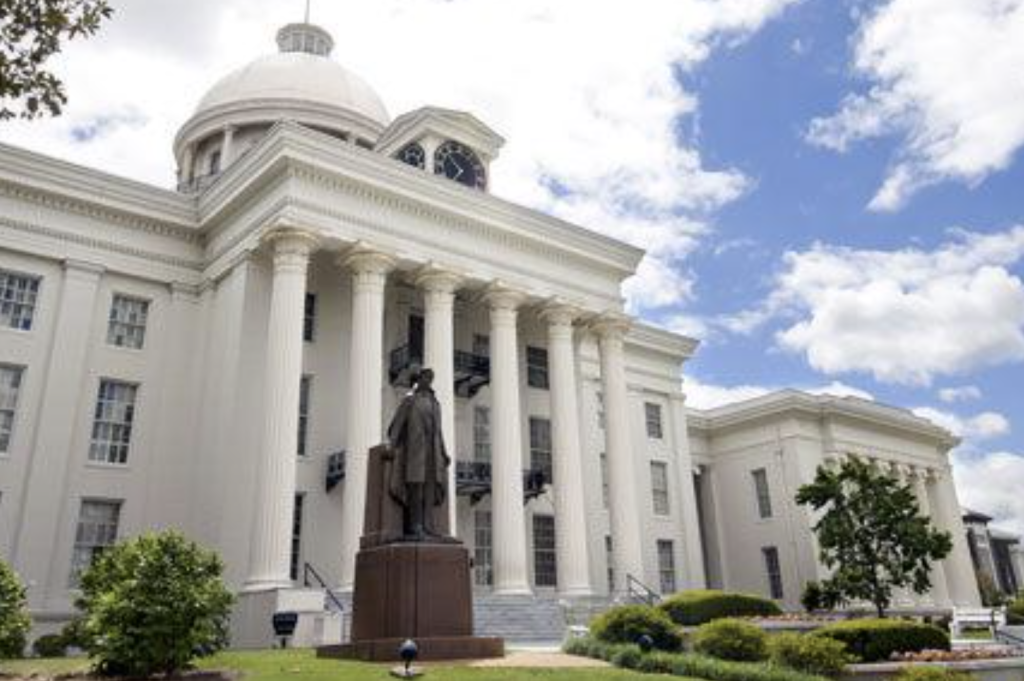‘Divisive concepts,’ school choice resurfaces ahead of Alabama legislative session
Published 2:54 pm Wednesday, March 1, 2023

- Alabama Capitol
MONTGOMERY — The debate of ‘divisive concepts’ in schools is making its way back into Alabama Legislature, which is expecting to vote on a slew of education-related bills this year.
Ahead of the March 7 legislative session, Republican Rep. Ed Oliver introduced House Bill 7 which would prohibit public entities from promoting, endorsing, or requiring affirmation of certain divisive concepts relating to race, sex or religion.
In part, the bill defines divisive concepts as concepts that indicate “that solely by virtue of an individual’s race, color, religion, sex, ethnicity, or national origin, the individual is inherently racist, sexist, or oppressive, whether consciously or subconsciously.”
The bill would prohibit a state agency, local board of education or public institution of higher education from sharing his or her personal point of view on any divisive concept, prevent public institutions from conditioning enrollment or attendance in a class, training, or orientation solely on the basis of race or color.
A near identical bill, HB 312, passed along party lines in the House 65-32, but did not make it to the Senate before the end of the 2022 legislative session.
Employees or contractors of a state agency, local board of educatio or public institution of higher education would not be prevented from responding to questions that are raised by participants in the orientation, course work or training, or that pertain to divisive concepts, according to the bill.
The bill also clarifies that it wouldn’t prohibit the teaching of topics or historical events in a “historically accurate context.”
HB 7 is among copy-cat bills nationwide that aim to combat teachings of critical race theory — typically taught in higher education institutes and indicates that the country’s criminal justice system, education system, labor and housing, etc. are embedded in racism through laws and regulations that have different outcomes based on race.
The Alabama State Board of Education banned the teaching in public schools in 2021 via a resolution, though the concept was not currently taught in K-12 curriculum.
Lawmakers also expect to take up school choice proposals again after such bills failed to advance in previous sessions.
Tuscambia Sen. Larry Stutts, a Republican, plans to introduce the Parental Rights in Children’s Education Act (PRICE Act), which would provide $6,000 a year in tax dollars for each child in Alabama.
The bill has not yet been filed and is still being drafted. But according to AL.com, the money would come from a state Education Savings Account and parents could use the funds to send their child to a school (public, private, religious or homeschool) outside their assigned district.
Other bills that have been filed under the education spectrum include:
HB 42 – School drills
Under existing law, a local board of education is required to develop a comprehensive school emergency operations plan for each school under its jurisdiction.
This bill would require regularly scheduled lockdown drills to be conducted with the participation of school resource officers and law enforcement. The bill, if approved, would designate those days on which drills are conducted as school safety and awareness days.
HB 43 – Kindergarten – 1st grade enrollment
The bill states that a 6-year-old can be entitled to admission into first grade only if he or she has successfully completed kindergarten, or has demonstrated first-grade readiness though a state assessment.
The bill would also provide for those circumstances where a child younger than age 5 on Sept. 1 may be admitted to public kindergarten.
HB 45 – Cardiac arrest in students
The bill would require the State Board of Education adopt certain guidelines to inform and educate student athletes, parents,and coaches about the signs and symptoms of sudden cardiac arrest.
A student who passes out, faints or show symptoms of sudden cardiac arrest is required to be removed from the athletic activity and would not be able to return until a medical professional provides written clearance for his or her return.
The bill would also require coaches to to receive annual training about cardiac arrest and provides protections to the coach from liability related to a student who shows symptoms of sudden cardiac arrest.





